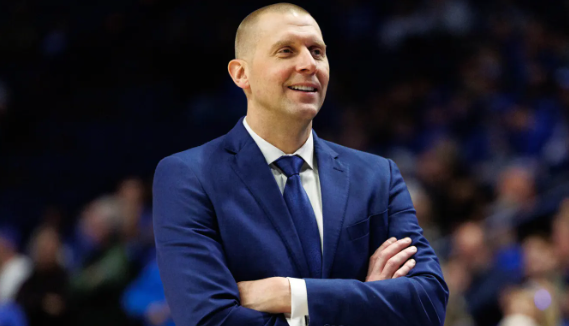The conclusion of the John Calipari era at Kentucky unfolded in a way that few anticipated. Following the team’s second disappointing first-round exit in the NCAA Tournament within three years, both fans and analysts began to genuinely question if it was time for the program to consider a change in direction.
While Calipari had previously restored Kentucky to a leading position in college basketball, it became clear that his coaching methods were becoming outdated. The strategy of relying on one-and-done freshmen to contend for a national title was no longer viable, yet Calipari appeared reluctant to evolve. Recognizing the inevitable, both he and the Kentucky administration reached a mutual agreement that allowed for a smooth separation. Calipari opted to move to Arkansas, enabling the Wildcats to sidestep his buyout. With this significant chapter in Kentucky’s storied history closed, attention shifted to who would be the new leader for the Wildcats.
After a month-long search for a new coach, during which names like Dan Hurley of UConn and Scott Drew of Baylor were considered, Kentucky ultimately chose Mark Pope from BYU. Pope had strong ties to Kentucky as a member of the 1996 national championship team. However, his hiring divided the fanbase, as he didn’t possess the same level of credentials as the bigger names rumored for the role. Pope had never advanced a team past the first round of the NCAA Tournament, leading many to doubt whether the leap from BYU to Kentucky was too ambitious. Nevertheless, what these skeptics did not realize at the time was Pope’s keen understanding of how to build a competitive team in today’s college athletics landscape.
With much of Kentucky’s previous talent either following Calipari to Arkansas or declaring for the NBA draft, Pope turned to the transfer portal to assemble his roster. He recruited several experienced players from various backgrounds, prioritizing those who would synergize well together.
Players such as Koby Brea and Amari Williams came from smaller mid-major schools, while Andrew Carr transferred from Wake Forest and Otega Oweh, the team’s leading scorer, arrived from Oklahoma. Although this group was recognized for their experience, concerns lingered about their ability to compete in what is arguably the nation’s toughest conference.
However, those doubts were dispelled recently when Kentucky faced off against national-title favorite Duke on November 12, securing a 77-72 win. The contributions of the new players were instrumental in the victory, and the team functioned with the cohesion of a unit that had been together for years.
Fans of the Wildcats would agree that under Calipari, a game like that would have likely resulted in defeat, as a team of inexperienced freshmen would have crumbled under the pressure of a significant televised matchup. Instead, the veteran roster assembled by Pope capitalized on each player’s strengths and appeared to be genuine contenders for the national championship.
This way of building a team demonstrates that Calipari’s philosophies have become antiquated. Achieving a national title today requires more than just considerable talent; it necessitates veteran leadership and a roster that effectively complements each member’s abilities.
Pope appears to grasp this principle in a way that Calipari either could not or chose not to. While Calipari’s contributions to Kentucky basketball will always be honored, it is now evident that Pope is the path forward for the program.
